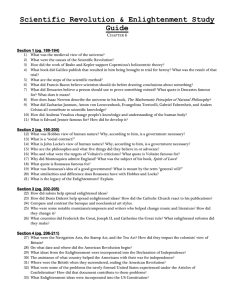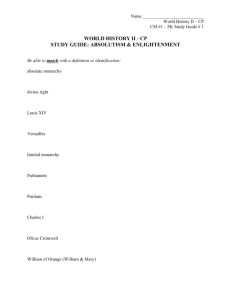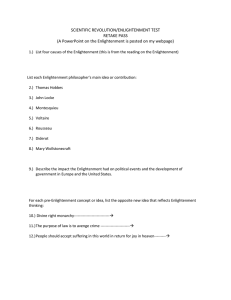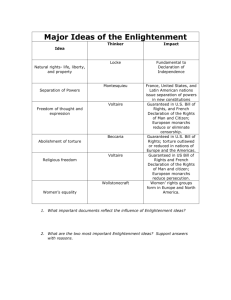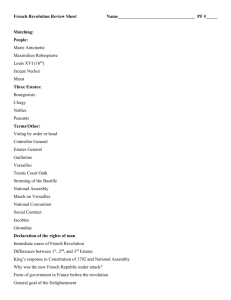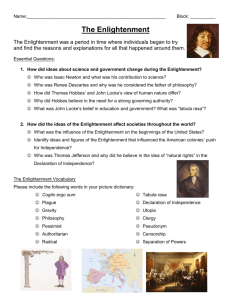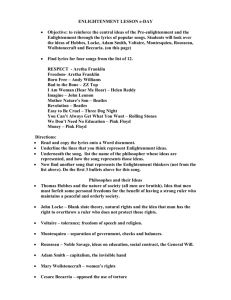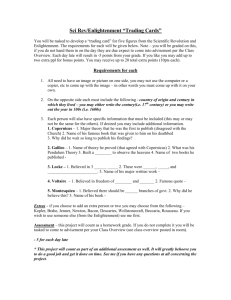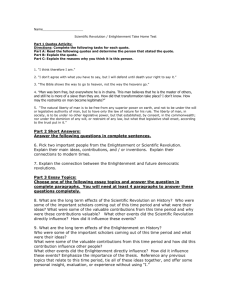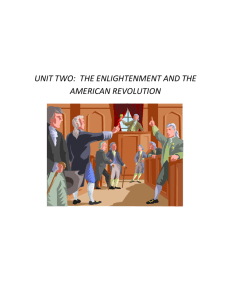Name: Due Date
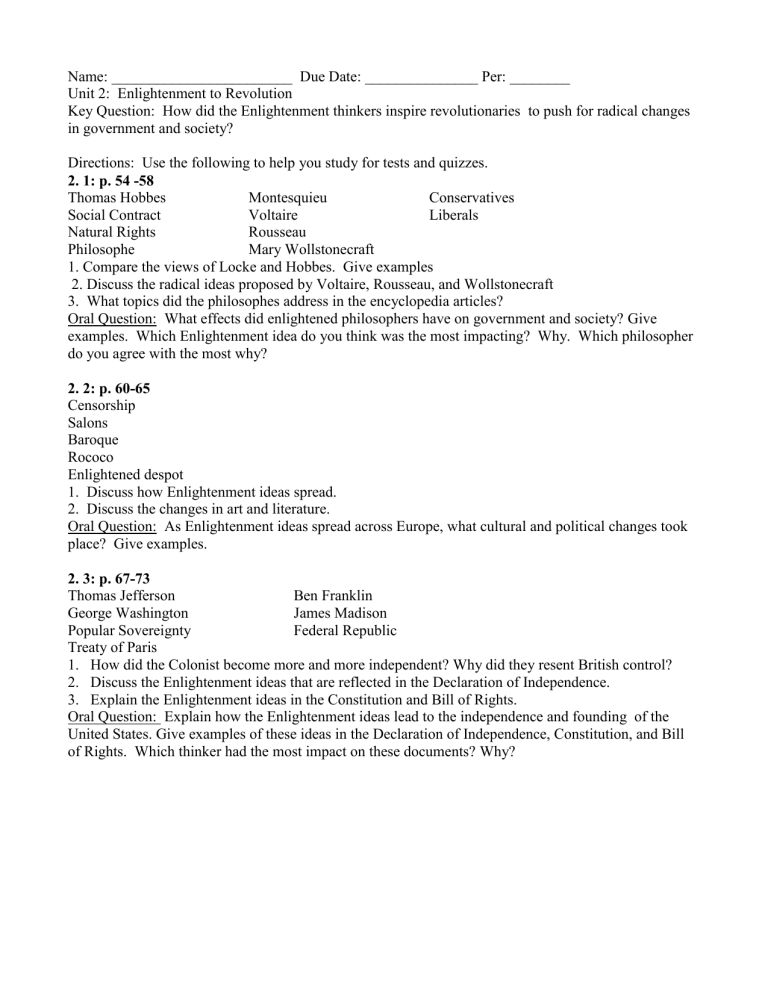
Name: ________________________ Due Date: _______________ Per: ________
Unit 2: Enlightenment to Revolution
Key Question: How did the Enlightenment thinkers inspire revolutionaries to push for radical changes in government and society?
Directions: Use the following to help you study for tests and quizzes.
2. 1: p. 54 -58
Thomas Hobbes
Social Contract
Natural Rights
Philosophe
Montesquieu
Voltaire
Rousseau
Conservatives
Liberals
Mary Wollstonecraft
1. Compare the views of Locke and Hobbes. Give examples
2. Discuss the radical ideas proposed by Voltaire, Rousseau, and Wollstonecraft
3. What topics did the philosophes address in the encyclopedia articles?
Oral Question: What effects did enlightened philosophers have on government and society? Give examples. Which Enlightenment idea do you think was the most impacting? Why. Which philosopher do you agree with the most why?
2. 2: p. 60-65
Censorship
Salons
Baroque
Rococo
Enlightened despot
1. Discuss how Enlightenment ideas spread.
2. Discuss the changes in art and literature.
Oral Question: As Enlightenment ideas spread across Europe, what cultural and political changes took place? Give examples.
2. 3: p. 67-73
Thomas Jefferson
George Washington
Popular Sovereignty
Ben Franklin
James Madison
Federal Republic
Treaty of Paris
1.
How did the Colonist become more and more independent? Why did they resent British control?
2.
Discuss the Enlightenment ideas that are reflected in the Declaration of Independence.
3.
Explain the Enlightenment ideas in the Constitution and Bill of Rights.
Oral Question: Explain how the Enlightenment ideas lead to the independence and founding of the
United States. Give examples of these ideas in the Declaration of Independence, Constitution, and Bill of Rights. Which thinker had the most impact on these documents? Why?
French Revolution
Pages: 108-136 Chapter 3
1.
King Louis XVI and Marie Antoinette
2.
Palace of Versailles
3.
Old Regime – First, Second, Third Estate
4.
Bourgeoisie
5.
Reasons for Revolution
6.
Meeting of Estates General
7.
Tennis Court Oath
8.
Bastille/ Great Fear
9.
Declaration of Rights of Man and Citizens
10.
Women’s March on Versailles
11.
Reason for war with Austria
12.
Maximilien Robespierre and Committee of Public Safety
13.
Reign of Terror
14.
Guillotine
15.
Republic
16.
Napoleon Bonaparte
17.
Continental System
18.
Invasion of Russia 1812
19.
Scorched-earth policy
20.
Congress of Vienna
Latin America Revolutions:
4.3 155-160
1.
Peninsulares
2.
Creoles
3.
Mestizos
4.
Mulattoes
5.
Simón Bolivar
6.
Toussaint L’Ouverture

